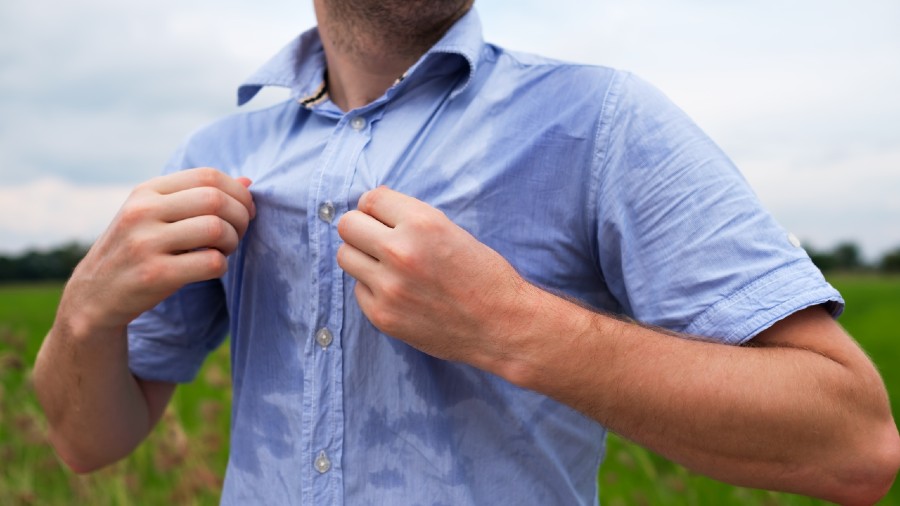All humans have a distinctive, identifiable body odour, usually pleasant but sometimes not so. It is not due to our sweat, which is odourless, but due to bacteria living on our bodies. These bacteria break down the sweat and keratin proteins on the surface of the skin. This occurs mainly in “sweaty areas” such as the underarms and groin. Sweating cannot be prevented. It is the body’s natural way of cooling down, so if it is very hot or after heavy exercise, the whole body will sweat.
Babies smell pleasant because they do not sweat. Sweating starts around the fifth month. It then increases, and at puberty, under the influence of hormones, sweating and body odour profoundly increase. Older people smell different. This is partly because they often have certain diseases and also because their skin has greater concentrations of an unsaturated aldehyde called 2-nonenal. The Japanese even have a special name for the odour of older people. They call it “kareishu”.
Body odour increases when excess sweat is secreted. This can occur in hot weather, with heavy exercise, in overweight individuals and when spicy food is eaten. Body odour changes with certain diseases such as diabetes and liver and kidney failure. The air breathed out can also be foul-smelling (halitosis) and can be unpleasant if there are caries (in teeth), sinusitis or lung infections. All these contribute to the general odour around your body. The smell of spices, garlic and onions can also ooze out of the pores of the skin.
Many people use talcum powder to combat body odour. It is made from finely ground hydrated magnesium silicate mixed with perfume. It can absorb moisture and reduce friction between skin folds as well as between skin and clothes. It should not be used in babies as it can produce allergies and also be inhaled during application, damaging the lungs. It should not be applied to the genital area, especially in women, as a link has been found between the use of talcum powder in this area and ovarian cancer.
Smelly feet are a social problem for some people. To prevent it, add 5ml of 3 per cent solution of hydrogen peroxide to 100ml of water, soak a soft towel in it and wipe the feet.
Always dry the feet thoroughly. Use only absorbent cotton socks and change socks every day and after every gym work out. For work and daily use, alternate between two sets of footwear.
As for diet, a high carbohydrate one with lots of red meat is associated with more body odour. A diet with 4-6 helpings of fruits and vegetables a day produces less odorous sweat. Regular alcohol consumption and smoking also change body odour. In addition, use of tobacco causes foul-smelling breath.
If sweating increases and body odour suddenly changes, it may be due to an infection. If simple measures do not correct the problem, a doctor should be consulted.
Tackle Tricks
• Remove underarm and groin hair as they trap both sweat and bacteria. Bacteria cannot breed in dry areas of the body
• Bathe twice a day using antibacterial soap. Do not apply the soap directly to the skin. Use a towel, loofah or herbal scrubber. Dry the armpits, groin and the areas under any skin folds thoroughly
• Change clothes after exercise and do not reuse them without washing
• Use smell-masking agents such as perfumes, body spray or deodorant
• Apply an antiperspirant to the armpits. This is usually a product that contains aluminium. Deodorants are different — these merely mask the smell of sweat. Combination products (deodorant and antiperspirant) are also available










